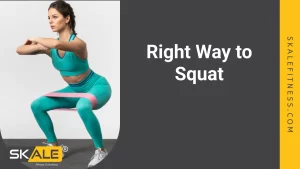If you’re an athlete or simply want to train like one, sports specific workouts are the key to unlocking peak performance. Whether you’re playing basketball, boxing, or football, targeted training can make all the difference in how you perform on game day. In this post, we’ll explore the concept of sports-specific training, provide examples, and explain how these workouts can help you elevate your skills and endurance.
In the world of fitness, not all workouts are created equal. For athletes, generic fitness routines don’t always cut it. Sports specific workouts are designed to mimic the movements, energy demands, and intensity levels of a particular sport. By tailoring exercises to a sport’s unique demands, you can improve speed, agility, strength, and power in a way that translates directly to the playing field. These workouts help you train smarter, preparing your body to perform at its best during competition.
What is Sports-Specific Training?
Sports specific workouts are fitness routines specifically designed to improve performance in a particular sport. Unlike general fitness programs that focus on overall health or strength, sports-specific training hones in on the movements and skills you need to excel in a particular game or activity. Whether it’s increasing a basketball player’s vertical jump, improving a boxer’s endurance, or boosting a football player’s explosive power, these workouts target sport-related strengths.
Training like this requires a blend of strength, agility, endurance, and skill practice, with each element carefully chosen to match the physical and mental demands of the sport. The idea is to prepare your body for the challenges of the game, making your training time more effective and efficient.
Examples of Sports-Specific Workouts & Drills
Now, let’s dive into some practical examples of sports specific workouts for different sports. Each sport demands different muscle groups, techniques, and endurance levels, and these workouts are designed to meet those exact needs.
Basketball Specific Training
Basketball specific training focuses on improving speed, agility, vertical jumping, and endurance. Key drills include:
- Lateral Shuffles: Helps with defensive movements.
- Jump Squats: Builds explosive leg power for vertical jumps.
- Suicides: Improves sprinting speed and conditioning.
- Cone Drills: Enhances footwork and quick direction changes.
By focusing on quick bursts of movement and explosive strength, basketball training mirrors what players need during a game quick cuts, vertical jumps, and fast sprints up and down the court.
Boxing Specific Exercises
For fighters, boxing specific exercises focus on endurance, agility, power, and coordination. Effective exercises include:
- Shadowboxing: Improves footwork, speed, and technique.
- Heavy Bag Work: Builds punching power and endurance.
- Jump Rope: Enhances cardiovascular endurance and timing.
- Medicine Ball Throws: Develops rotational strength for stronger punches.
Boxing demands quick reflexes and endurance, and this type of training helps boxers stay light on their feet while delivering powerful punches.
Football Specific Gym Training
Football specific gym training emphasizes strength, explosive power, and speed. Some key exercises are:
- Power Cleans: Improves explosive power for sprinting and tackling.
- Sled Pushes: Builds lower body strength and endurance.
- Box Jumps: Increases leg power for explosive movements on the field.
- Agility Ladder Drills: Sharpens footwork and quickness.
For football players, sports specific workouts need to focus on building raw power while maintaining agility and speed to move quickly across the field.
The Benefits of Sports-Specific Workouts
The benefits of sports specific workouts extend beyond just improving physical performance:
- Injury Prevention: By strengthening the exact muscles used in a sport, athletes are less prone to injury.
- Improved Performance: Targeted workouts develop the skills you need most, from endurance to explosive power.
- Mental Preparation: These workouts mimic game-day conditions, so athletes are mentally prepared for the intensity of competition.
- Increased Confidence: Knowing that your training is directly improving your game can boost confidence, translating into better performance on the field or court.
Sports-specific training not only sharpens your physical abilities but also builds the mental toughness required for high-level competition.
Sports-Specific vs. Strength & Conditioning vs. Functional Training
It’s important to understand the difference between sports specific workouts, traditional strength and conditioning, and functional training:
- Sports-Specific Workouts: Focus on movements and energy systems used in a particular sport. These workouts are tailored for athletes and are designed to mimic in-game demands.
- Strength & Conditioning: More generalized and aims at overall physical development, including strength, speed, and stamina.
- Functional Training: Involves exercises that improve overall movement quality and strength but aren’t focused on any particular sport.
While all three approaches have their place in an athlete’s routine, sports specific workouts give you an edge by training you for exactly what you’ll face in competition.
Incorporating Sports-Specific Workouts into Your Routine
To make the most of sports specific workouts, you’ll want to structure them around your current sport season. In the off-season, focus on building general strength and conditioning. As you approach the competitive season, your workouts should become more specific to your sport, emphasizing drills and exercises that mimic the demands of the game.
Here are a few tips for incorporating sports-specific training into your routine:
- Periodization: Break your training into different phases, starting with strength, then shifting toward speed and agility as you near competition.
- Recovery: Ensure you include recovery days to prevent overtraining and injury.
- Skill Integration: Combine sport-specific drills with strength exercises to blend physical conditioning with technical skills.
By strategically organizing your training plan, you can maximize the benefits of sports specific workouts without burning out or risking injury.
Conclusion
Sports specific workouts are the key to unlocking your athletic potential. Whether you’re focused on basketball specific training, boxing specific exercises, or football specific gym training, these targeted workouts prepare you for the demands of your sport. By incorporating sport-specific drills into your routine, you’ll not only improve your physical performance but also gain a competitive edge in your game.If you’re interested in developing a personalized training program, or have questions about how to integrate sports specific workouts into your routine, don’t hesitate to reach out. Let’s work together to help you become the best athlete you can be!




